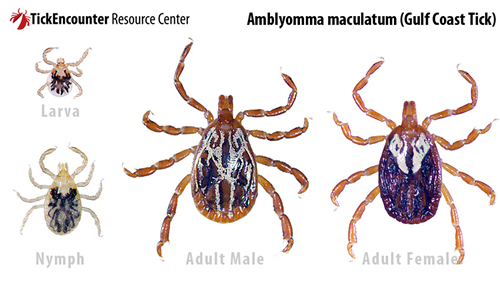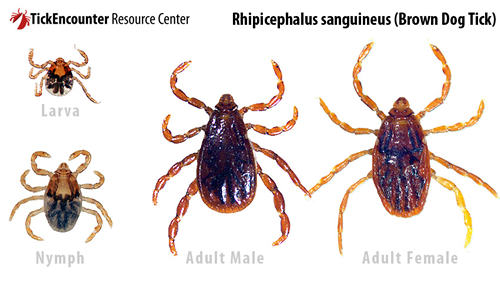It’s a pet-friendly world out there! Many of us will seek out the perfect vacation spot this summer, and carry our pets with us. We must be vigilant of potential hazardous tick-borne illnesses that exist in the areas we visit. If you plan to head to the southern or south central United States this year, be aware of Hepatozoonosis.

Hepatozoonosis is a dangerous and potentially deadly tick-borne disease, if left undiagnosed and untreated. If you have never heard of it, that’s because it is prevalent in areas much farther south than Central MA. There are two separate strains of this illness – H. canis and H. americanum – and there have actually been some reported cases in our part of the world. How? Pets have visited or moved with their family from a region, where the disease is prevalent.
How do dogs contract Hepatozoonosis?

Quite simply, actually. Dogs are curious creatures, and can easily come in contact with a Hepatozoon-infected adult tick or a host animal carrying a infected larval tick. What’s interesting about this tick-borne illness, is that it doesn’t take a tick bite for infection. Dogs ingest a diseased tick, and contract Hepatozoonosis when the Hepatozoon organism attaches itself to their gut wall. The disease is then carried through the bloodstream to the spleen, lungs, pancreas, and even the skeletal muscles.
H. americanum is transmitted by the Gulf Coast tick.
H. canis is transmitted by the brown dog tick.
What are the symptoms, diagnosis, and treatment for Hepatozoonosis?
While H. americanum can present with many symptoms, such as fever, muscle pain and stiffness, eye discharge, lethargy, and weight loss, H. canis will likely have no symptoms. However, in instances of extremely high parasite numbers, H. canis can have similar symptoms, accompanied by anemia and an enlarged spleen.

It’s very important that you be aware of Hepatozoonosis. If you ever take your dog out of the Central MA region, and they become ill, please tell your Veterinarian where you have been. Tick-borne illnesses that are not common to Central Mass might not be tested for or even thought about otherwise!
Blood smears under a microscope will reveal the existence of Hepatozoon. H. americanum is treated for life, without a cure. H. canis is easier to treat, and can be cured with a couple of shots.

As always, keep your Central Massachusetts home and family safe from the threat of tick-borne illnesses with professional tick control, and always check your pets after they have been outdoors!

